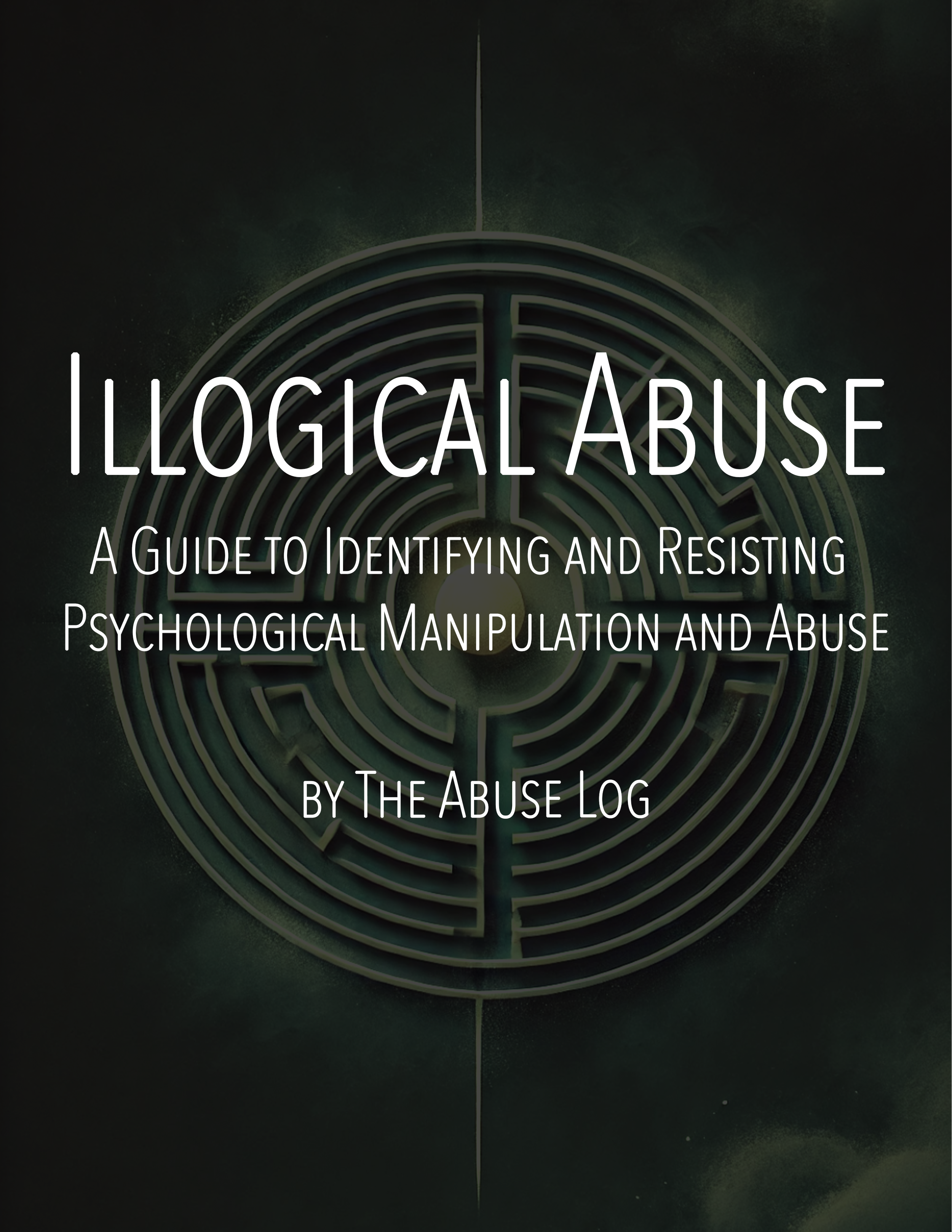Narcissistic Crazy-Making Tactics: Recognizing Them and Breaking Free (Part 1)
In relationships with narcissists, whether in family, friendship, or romantic settings, "crazy-making" communication tactics are often wielded to manipulate, control, and destabilize the other person. These tactics are deliberately designed to confuse, disorient, and undermine one's sense of reality, leaving them emotionally drained and questioning their sanity. The goal is to keep the other person off-balance, insecure, and in a constant state of anxiety or self-doubt.
Below, we explore the many facets of crazy-making in communication and break down some of the most common toxic tactics used by narcissists to gain control. By recognizing these tactics, individuals can begin to understand the mechanisms of emotional abuse and take steps toward reclaiming their sense of reality and self-worth.
1. Baited Questions
Definition: Baited questions are manipulative queries posed to provoke insecurity, guilt, or doubt in the target. These questions are not meant to genuinely inquire or understand but to elicit specific, often negative, reactions.
Example: “Why do you always have to ruin everything?” or “Do you even care about anyone but yourself?”
Purpose: By asking these loaded questions, narcissists can subtly plant doubts and insecurities in their target. They prompt the other person to feel guilty, inadequate, or selfish, manipulating them into feeling “responsible” for the narcissist’s emotions.
Impact: Over time, being on the receiving end of baited questions can lead to chronic guilt and self-doubt, as the target begins to question their intentions, values, and self-worth.
2. Baiting
Definition: Baiting involves setting emotional traps meant to provoke anger, hurt, or conflict. Narcissists use baiting to get a rise out of their target, often so they can later accuse them of being “overly emotional” or “irrational.”
Example: Making subtle digs about sensitive topics, then accusing the target of being “too sensitive” when they react.
Purpose: The narcissist uses baiting as a form of emotional manipulation to make the target appear reactive or unstable. It’s a tactic to gain control by making the other person look unreasonable, which often helps the narcissist claim the role of the “calm and reasonable” one in the relationship.
Impact: This tactic can be deeply frustrating and demoralizing, as the target finds themselves constantly provoked but unable to express their feelings without being criticized for “overreacting.”
3. Belittling
Definition: Belittling involves making degrading or dismissive remarks that undermine the target’s self-esteem or sense of worth. This can include comments about their intelligence, appearance, values, or abilities.
Example: “You really think you can handle that job? You’re not smart enough for that.”
Purpose: By belittling others, narcissists create a power imbalance. They make the target feel small, insecure, or incapable, which serves to increase the narcissist’s own sense of superiority and control.
Impact: Prolonged belittling can severely impact the target’s self-esteem, causing them to feel unworthy and dependent on the narcissist for validation.
4. Blaming
Definition: Narcissists often shift responsibility for any problems or failures onto others. Blaming involves unfairly assigning fault to the target, regardless of who was actually responsible.
Example: “If it wasn’t for you, we wouldn’t be in this mess.”
Purpose: Blaming helps the narcissist avoid accountability and maintain a sense of superiority. By placing all fault on the target, they dodge responsibility for their own mistakes or failings.
Impact: Consistently being blamed can lead the target to internalize guilt and feel perpetually at fault, eroding their confidence and autonomy.
5. Blocking/Diversion
Definition: Blocking or diversion occurs when the narcissist redirects the conversation or obstructs it to avoid addressing the issue at hand. They might change the subject, dismiss concerns, or derail discussions.
Example: When confronted with their behavior, the narcissist might say, “You’re just being dramatic,” or start talking about an unrelated topic.
Purpose: This tactic allows the narcissist to avoid accountability by sidestepping meaningful conversation. Blocking and diversion make it impossible to resolve issues or confront their behavior.
Impact: This tactic leaves the target feeling unheard, invalidated, and frustrated, as their concerns are dismissed or brushed aside without acknowledgment.
6. Brandishing Anger/Rage
Definition: Brandishing anger or rage involves using explosive outbursts or intimidation to control or silence the other person.
Example: Yelling, slamming objects, or using aggressive body language when confronted or challenged.
Purpose: This tactic instills fear and compliance in the target, discouraging them from bringing up issues or expressing their feelings. It establishes a dynamic where the narcissist controls the emotional tone of the relationship.
Impact: Living under the threat of sudden anger can lead the target to feel on-edge, anxious, and fearful, often censoring themselves to avoid provoking the narcissist’s rage.
7. Circular Conversations
Definition: Circular conversations are repetitive dialogues that go nowhere. The narcissist will bring up the same issues or arguments without any attempt to resolve or find clarity.
Example: Repeating the same argument points without reaching any conclusion or resolution.
Purpose: This tactic is meant to exhaust and confuse the target, keeping them locked in a loop that prevents closure. It also gives the narcissist a way to continually avoid accountability.
Impact: Circular conversations can lead the target to feel mentally drained and powerless, as they’re unable to find resolution or move forward.
8. Condescending Attitude
Definition: Condescension involves a patronizing or superior tone meant to make the other person feel inferior or ignorant.
Example: “Oh, you wouldn’t understand; it’s too complicated for you.”
Purpose: By being condescending, the narcissist reinforces a power dynamic where they are “above” the target, creating a sense of intellectual or emotional inferiority.
Impact: Being spoken to in a condescending way can erode self-confidence, making the target feel less intelligent, capable, or worthy.
9. Countering
Definition: Countering involves disputing or challenging the target’s feelings, thoughts, or perceptions, effectively undermining their sense of reality.
Example: “That’s not what happened—you’re just making things up.”
Purpose: This tactic allows the narcissist to control the narrative, eroding the target’s confidence in their own perceptions and making them more dependent on the narcissist’s version of events.
Impact: Over time, countering can lead to self-doubt, where the target starts questioning their memory, judgment, and reality.
10. Evasion
Definition: Evasion is the act of dodging discussions or responsibilities to maintain control and avoid accountability.
Example: Ignoring messages, refusing to answer questions, or deflecting when asked to explain their behavior.
Purpose: By evading discussions, the narcissist maintains the upper hand, as their actions and intentions remain unchallenged and unexplained.
Impact: This creates frustration and confusion in the target, as they’re unable to gain clarity or resolve issues, leading to a feeling of helplessness.
11. False Accusations
Definition: Narcissists may make baseless accusations to deflect blame and instill doubt or guilt in the target.
Example: “You’re cheating on me, aren’t you?” without any evidence.
Purpose: False accusations destabilize the target and force them to go on the defensive, diverting attention from the narcissist’s own behavior.
Impact: This can create a constant state of defense, making the target feel anxious and guilty even when they’ve done nothing wrong.
12. Feigning Innocence
Definition: Pretending not to understand or know what’s going on to avoid responsibility or accountability.
Example: “What are you talking about? I didn’t do anything wrong.”
Purpose: By feigning innocence, the narcissist avoids confrontation and creates a sense of doubt in the target’s mind about their own perspective.
Impact: This tactic gaslights the target, making them question their own perceptions and understanding of events.
13. Feigning Confusion
Definition: Acting as if they don’t understand the issue, making it appear as though the target is being unreasonable.
Example: “I don’t see why you’re so upset—what did I do?”
Purpose: Feigning confusion frustrates the target and shifts the responsibility onto them to explain, ultimately making them feel like they’re overreacting or misinterpreting the situation.
Impact: This tactic can leave the target feeling exasperated and unsupported, as their concerns are minimized or dismissed.
14. Forgetting / Denying to Remember
Definition: Selective memory or pretending to forget something to avoid responsibility.
Example: “I don’t remember agreeing to that,” or “I never said that.”
Purpose: Denying memory or pretending to forget allows the narcissist to avoid accountability and create doubt.
Impact: This tactic gaslights the target, leading them to question their own memory and perception of events.
15. Covert Intimidation
Definition: Subtle threats or hints that are intended to instill fear or compliance without directly stating their intentions. Covert intimidation often appears as subtle body language, ambiguous statements, or implied threats.
Example: “You wouldn’t want to see what happens if you don’t cooperate,” or using a particular look or silence to make the other person feel uneasy.
Purpose: The goal of covert intimidation is to manipulate through fear while maintaining plausible deniability. By being indirect, the narcissist can control the other person’s actions or decisions without openly appearing threatening, thus avoiding accountability.
Impact: Over time, covert intimidation creates an environment of tension and anxiety, making the target fearful of upsetting the narcissist. The target may start to “walk on eggshells,” constantly trying to avoid triggering this subtle but powerful form of intimidation.
16. DARVO (Deny, Attack, Reverse Victim and Offender)
Definition: DARVO is a specific tactic where the narcissist denies wrongdoing, attacks the person confronting them, and then reverses the roles of victim and offender. This means the narcissist will act as though they are the one being wronged or harmed.
Example: When confronted about a hurtful action, the narcissist might say, “I can’t believe you’re accusing me of this! You’re so ungrateful after everything I’ve done for you.”
Purpose: DARVO allows the narcissist to evade accountability while shifting the focus to the other person’s “unreasonable” behavior. This tactic also garners sympathy for the narcissist, positioning them as the “true” victim.
Impact: This tactic can be deeply disorienting for the target, as they may begin to feel guilty for even bringing up their concerns. It leads to self-doubt and can make the target feel like they are the one who’s wrong, fostering a sense of isolation and emotional turmoil.
17. Diversion
Definition: Diversion is the act of redirecting attention away from the issue at hand to sidestep accountability. This tactic can involve changing the subject, bringing up unrelated topics, or trivializing the concern.
Example: When questioned about a mistake, the narcissist might say, “Why are we even talking about this? You always bring up the past,” or shift the focus to an unrelated issue.
Purpose: Diversion prevents the narcissist from having to confront or answer for their behavior, making it difficult for the target to hold them accountable or resolve issues.
Impact: Constantly experiencing diversionary tactics can lead the target to feel confused, frustrated, and powerless, as they’re unable to address their concerns or find closure on important issues.
18. Circular Conversations
Definition: Circular conversations are repetitive, unproductive dialogues that avoid reaching resolution or clarity. The narcissist keeps the conversation going in loops, often rehashing old issues or steering the discussion back to unrelated grievances.
Example: When confronted, the narcissist might repeatedly bring up past issues or redirect the conversation to irrelevant points, keeping the focus from the actual problem.
Purpose: The goal of circular conversations is to exhaust and frustrate the target, leaving them confused and demoralized. By keeping the conversation in a never-ending loop, the narcissist avoids resolution and keeps control of the narrative.
Impact: Circular conversations can be mentally exhausting for the target, causing them to feel trapped and hopeless about reaching any kind of mutual understanding or solution.
Narcissistic Abuse and the Impact of Crazy-Making Tactics
Crazy-making communication tactics are hallmarks of narcissistic abuse, and they collectively serve one purpose: to destabilize and control the other person. By employing these strategies, narcissists create a web of confusion, guilt, fear, and doubt, which leaves the target disempowered and questioning their own reality. Over time, the target’s self-esteem and confidence erode, as they are constantly subjected to manipulations that undermine their sense of self and worth.
The long-term effects of these tactics can be devastating. Victims of narcissistic abuse often experience anxiety, depression, and self-doubt. They may lose trust in their own perceptions and feel isolated, as others may not see the abuse clearly. Recognizing these tactics and understanding their purpose is an essential step toward regaining control, rebuilding confidence, and breaking free from the toxic cycle.
Steps to Break Free from Crazy-Making Communication
1. Recognize the Tactics: Awareness is the first step. Understanding these tactics and how they work allows you to see the patterns in the narcissist’s behavior. Recognize when you are being baited, diverted, or blamed, and understand that these tactics are not a reflection of your worth but a means of manipulation.
2. Set Boundaries: Clear, firm boundaries are essential when dealing with narcissistic individuals. For example, decide that you will not engage in circular conversations or respond to baited questions. Boundaries reinforce your self-respect and protect your emotional health.
3. Limit Emotional Responses: Narcissists thrive on emotional reactions, as they validate their control over you. Try to remain calm and avoid reacting emotionally to baiting or rage tactics. This deprives the narcissist of the satisfaction of “winning” the exchange and reduces the chances of escalating conflict.
4. Focus on Facts, Not Feelings: When communicating with a narcissist, try to keep the focus on facts rather than emotions. Narcissists often dismiss feelings as irrelevant, so grounding conversations in concrete facts and statements can help you avoid getting sidetracked by their tactics.
5. Seek Support: Narcissistic abuse can be isolating, but reaching out for support can be empowering. Find friends, family members, or support groups who understand and validate your experiences. Professional therapy can also help you rebuild self-esteem, process the trauma, and learn coping strategies.
6. Practice Self-Compassion: Narcissistic abuse can leave lasting scars on self-worth and confidence. Practice self-compassion and remind yourself that the abuse is not a reflection of your value. Taking care of your mental and emotional health is a crucial part of the healing process.
Reclaiming Your Reality
Crazy-making communication tactics can create a distorted reality, where the narcissist dictates the terms of what is “real” and “valid.” By understanding these tactics, setting boundaries, and seeking support, you can start to reclaim your sense of reality and independence. The goal of narcissistic abuse is to control and confuse, but by empowering yourself with knowledge, self-compassion, and resilience, you can regain control of your life and move toward a healthier, more balanced future.
Breaking free from these manipulative cycles is a challenging journey, but with awareness and support, it is entirely possible. By recognizing these toxic tactics for what they are and standing firm in your truth, you can protect yourself from the damaging effects of narcissistic abuse and create a reality grounded in respect, authenticity, and self-worth. Remember, you deserve relationships that uplift, validate, and nurture you—and by learning to recognize and combat these crazy-making tactics, you are one step closer to reclaiming your peace and self-worth.
#CrazyMaking #NarcissisticAbuse #ToxicCommunication #Gaslighting #EmotionalAbuse #ManipulationTactics #BaitedQuestions #Baiting #Belittling #Blaming #Blocking #Diversion #AngerControl #CircularConversations #Condescension #Countering #Evasion #FalseAccusations #FeigningInnocence #FeigningConfusion #SelectiveMemory #CovertIntimidation #DARVO #NarcissisticBehavior #MentalHealthAwareness #RelationshipAdvice #EmotionalHealing #Boundaries #ToxicRelationships #GaslightingRecovery #SelfWorth #SelfCompassion #ReclaimYourPower #HealingJourney #AbuseAwareness #Empowerment #Survivor















